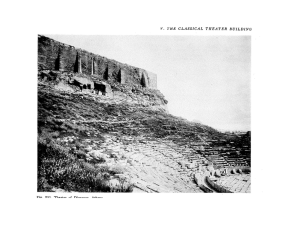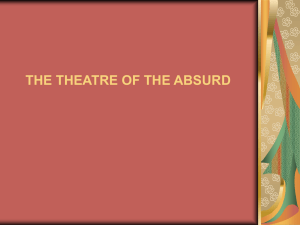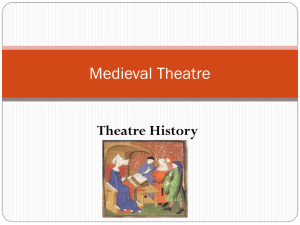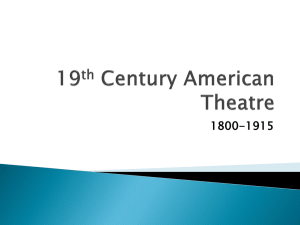Theatre of the Oppressed
advertisement
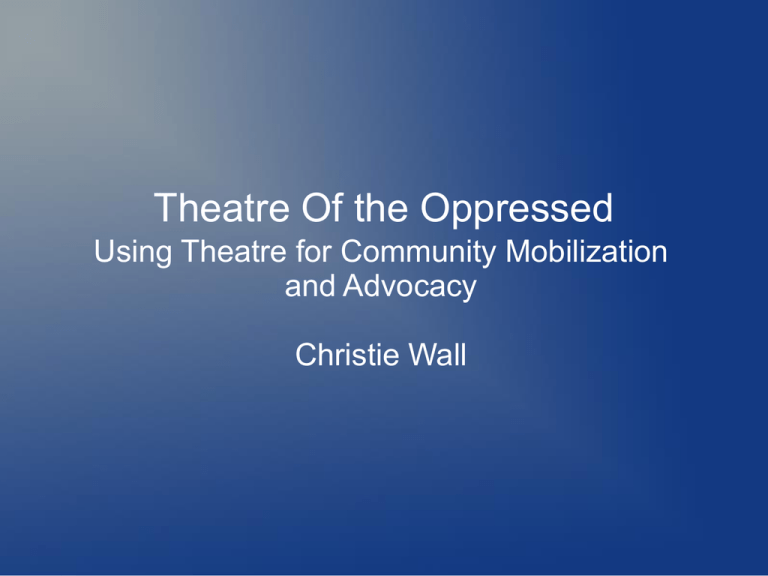
Theatre Of the Oppressed Using Theatre for Community Mobilization and Advocacy Christie Wall Theatre of the Oppressed Pedagogy of the Oppressed Community development Dialogue and action on relevant social issues Spect-actors Acting alternatives and resistance Image from www.studio34yoga.com Augusto Boal Created TO Brazilian actor Response to dictatorship in Brazil Image from: www.guardian.co.uk Strategies Encourage critical thought about social conditions Acting for social change Spectacle to engagement Blurs reality and fiction Image From: theforumproject.org Invisible Theatre Rehearsed play which occurs in public Audience does not know it is rehearsed Brings dialogue to public spaces Generally disrupts a social norm Theatre graffiti and product placement Example: Men in women's clothing Forum Theatre Creation of the play Role of the Joker First run-through Audience participation Image from: firehallartscentre.ca Who is the Joker? A neutral party: deck of cards Strong facilitation skills Enforces theatre's rules Image from: http://www.flickr.com/photos/nac-cna/3467942749/ Uses of Forum Theatre for Public Health Enable public dialogue Facilitate understanding of complexity Rehearse alternatives and solutions Making 'public health' public Legislative Theatre: Theatre Making Policy An extension of Forum Theatre Theatre becomes a way of conducting politics Instead of practicing individual responses, the interventions come through laws Augusto Boal used Legislative Theatre to create 13 laws while he was city councillor in Rio De Janeiro Resources Boal, A. (1974). Theatre of the Oppressed. London: Pluto Press. Boal, A. (2002). Games for actors and non-actors (2nd ed). New York: Routeledge. Diamond, D. (2007). Theatre for living: The art and science of community-based dialogue. Victoria, BC: Trafford Publishing. Headlines Theatre (no date). Theatre for living. Retrieved from: http://headlinestheatre.com/ The Forum Project (2013). The Forum Project: creative tools for creating change. Retrieved from: http://theforumproject.org/whatisto/

